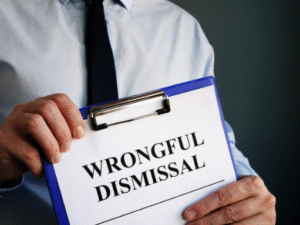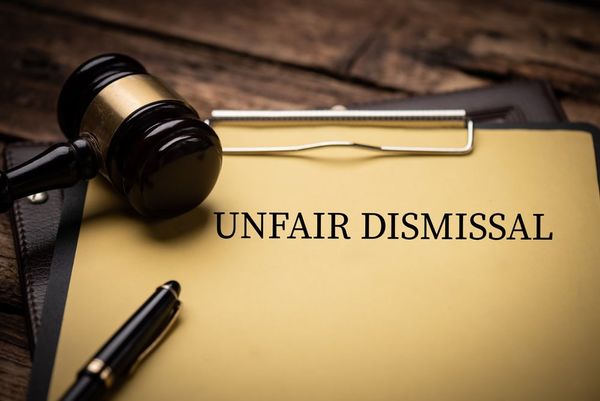Losing your job unexpectedly can be stressful, confusing, and financially devastating. But not every termination is legal or fair. In Nigeria, employees are protected by law against unfair dismissal, and you may be entitled to compensation—or even reinstatement—if your rights have been violated.
In this blog, we’ll explain what qualifies as unfair dismissal, how to know if your rights were breached, and what steps you can take to protect yourself.

What Is Unfair Dismissal?
Unfair dismissal occurs when an employee is terminated without just cause or due process. While employers have the right to dismiss staff, they must follow fair procedures and respect the terms of the employment contract and labour laws.
Common Examples of Unfair Dismissal
-
No valid reason provided for the dismissal
-
Dismissal based on discrimination (e.g. gender, religion, age, ethnicity)
-
Termination for whistleblowing or reporting illegal activity
-
Being fired while on sick leave or maternity leave
-
Dismissal without following contractual notice periods or disciplinary procedures
-
Termination for joining a union or participating in lawful protests
Know Your Rights Under Nigerian Labour Law
Nigeria’s employment laws offer various protections through instruments such as:
-
The Labour Act (primarily for blue-collar employees)
-
The Constitution of the Federal Republic of Nigeria
-
Decisions from the National Industrial Court
-
Individual employment contracts and company handbooks
These laws require that:
-
Employees are given reasonable notice or payment in lieu of notice
-
Dismissals must be done in good faith, not arbitrarily
-
Procedures (like warnings, hearings, or investigations) must be followed for disciplinary terminations
What Employers Must Do Before Terminating Employment
To avoid liability, employers should:
-
Provide a written reason for the dismissal.
-
Give fair hearing or opportunity for the employee to respond to allegations.
-
Follow the disciplinary procedures set out in the employment contract or staff handbook.
-
Respect statutory notice periods, or pay in lieu of notice.
Failure to do so could make the dismissal legally actionable.
What Can You Do If You’re Unfairly Dismissed?
If you suspect your dismissal was unfair, take the following steps:
✅ Review Your Employment Contract
Understand the terms of your employment, including notice periods, disciplinary procedures, and grounds for termination.
✅ Document Everything
Keep records of letters, emails, performance reviews, and any communication related to your dismissal.
✅ Seek Legal Advice
A qualified employment lawyer can assess your case and help you determine whether your dismissal was unlawful.
✅ File a Complaint with the National Industrial Court
If you have a valid claim, your lawyer can help you file for reinstatement, damages, or compensation.
Possible Remedies for Unfair Dismissal
If your claim succeeds, the court may order:
-
Reinstatement to your previous role
-
Payment of salaries and benefits owed
-
Compensation or damages for wrongful termination
-
Statements clearing your name, in cases of reputational harm
Prevention: Know Your Rights Early
Many employees lose out because they don’t know their rights until it’s too late. Understanding your rights at the beginning of employment—before trouble arises—is the best way to protect yourself.
At Bidwells Attorneys, we specialise in employment law and can help you assess your situation, challenge wrongful termination, and secure the justice you deserve.
📞 Contact us today for a confidential consultation
📅 Book an appointment online or email us at info@bidwellsattorneys.com






